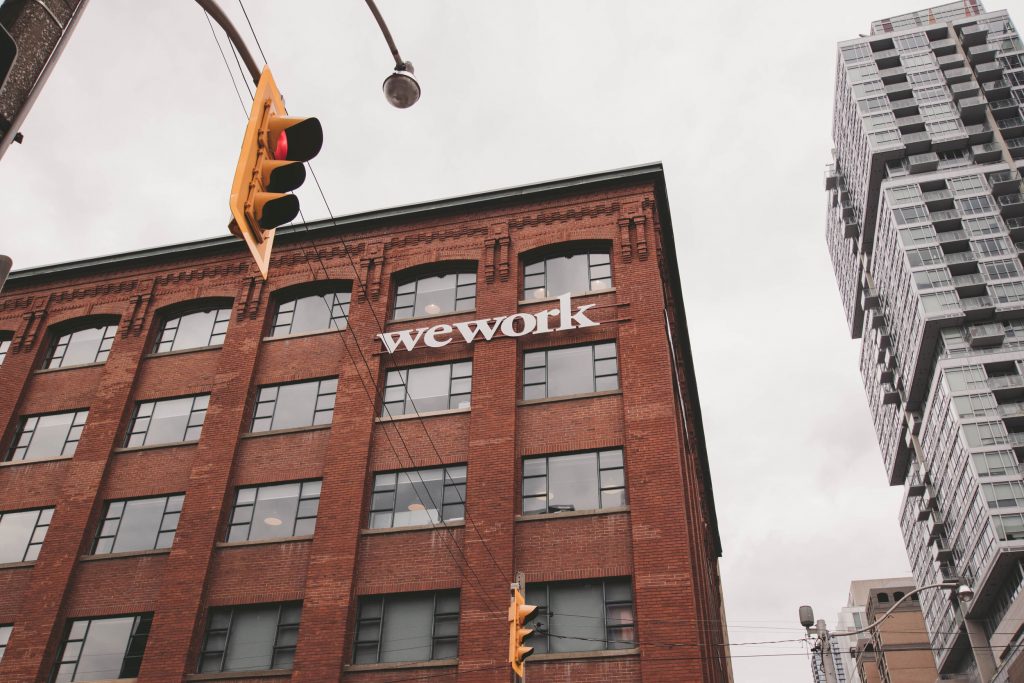Predictions for the Coworking Industry in 2020
ResourceAfter the surge of public interest in coworking last year, thanks to the WeWork washout, this year will be an interesting one for the industry.
Despite some negative voices still (somehow!) calling it a temporary trend, the evidence shows that coworking is here to stay, and thrive.
Plenty of legroom remains for new spaces to enter the market, especially outside of saturated areas such as London.
GCUC predict that the number of global spaces could rise to 50,000 by 2022. Alongside this, we’re going to see a consolidation of existing brands, major shifts in public perception of work, the implementation of new technologies and an enormous focus on community.
Software Sophistication
Let’s start with our field of expertise.
The coworking industry is maturing rapidly and a knock-on effect of this is an increase in customer expectations. The user experience now has to be seamless.
This includes; the signup process, booking resources, door access, changing membership, connecting with members and managing invoices. Workspace Management Software can solve all of these headaches at once.

By automating payments and booking processes, hosts are able to focus on community, which is the magic essence required for any successful coworking space.
Software also gives members autonomy, which is incredibly important for allowing people to manage their own work lives, instead of having to constantly make requests by email and have them approved.
We are already at a stage where some spaces are fully-automated and this trend will only continue to grow.
Stabilised Growth / Brand Consolidation
With the dramatic descent of WeWork, other brands of significant size are thinking more strategically about expansion, with some even making cutbacks.
Some will see this as a sign of a decline in demand, but in reality, it is a logical outcome of WeWork’s public fall. Instead of leapfrogging to new locations, brands are turning their attention inwards to consolidate their current customer base and ensure their internal operations are running smoothly.
Part of this evaluation period will be reviewing software and human resources. Is the company in a position to take on a new space? Are they financially stable? Do they have a clear workflow established in all of their spaces? Do they have a strong enough brand presence to successfully enter a new market?
WeWork led the way and those who follow have learned from their mistakes. Expect to see companies be more cautious and conscious in the future.

Even for smaller operators, there are stark lessons to be learned.
Primarily, you need to have airtight management systems in place before you start to expand, otherwise, things can quickly cascade out of control. Adopting a software solution can be an excellent way to address this early as it will grow as you grow and provide a consistent framework for employees and members.
Other than that, build a reliable team that you can trust to represent your brand.
The Rise of the Niche Space
This trend has been on the cards for a while, with hackerspaces and maker spaces leading the charge.
We are now seeing industry-specific shared working spaces, from gaming and robotics to sports and graphic design. These spaces may come with specialised equipment not available at one-size-fits-all solutions, for example, 3D printers or workshops.

Importantly, we are seeing that the niche does not have to be directly related to a profession.
Some spaces are building communities around shared personal interests such as Yonder who combine rock climbing with coworking. Another trend is the growing number of women-only spaces such as The Wing.
Niche spaces are a natural progression for the industry as providers seek new ways to differentiate themselves from competitors and attract a loyal customer base. It will be interesting to see whether any of these spaces can transform their model to work at international scale.
Will these spaces lose that unique culture and sense of exclusivity when they attempt to expand to multiple sites?
Corporate Interest in Flexible Space
Throughout 2020 we will see more corporations moving into flexible spaces.
Microsoft, HSBC, Salesforce, Facebook, IBM and Bank of America have already migrated portions of their employees into shared spaces. The exact nature of these arrangements will vary, but the emphasis will be on collaboration opportunities with other businesses and increasing employee loyalty.
Being surrounded by professionals from other industries is always going to result in new ideas being born. Innovation comes from conversation. Coworking facilitates conversation.
For very large companies, this move could also increase internal collaboration.
For example, someone from X department could have the opportunity to talk to someone from Y department, whereas in a traditional office they would have no framework to meet.

The wellbeing of employees is another hot topic at the moment.
Many coworking spaces construct their environments with health in mind, from plant life and yoga classes, to free fruit and recreation areas. Not only that, but by mingling with people who aren’t colleagues, people feel more like individuals at work and have a greater sense of autonomy.
A happy employee is a productive employee and retention rates of staff will increase with these conditions.
Finally, there is the matter of cold hard cash.
By moving into coworking spaces, corporations are saving money on building leases, especially those who are paying for more space than they need. On top of that, they are given more flexibility and can offer employees additional perks that are not available in the traditional office.
Final Thoughts
Coworking is going nowhere. In fact, it’s going to be everywhere.
A final point that deserves a mention is that coworking will play an important part in the revitalisation of small towns. Having local remote work hubs where skilled professionals can go has the power to dramatically change society. It encourages people to shop locally, engage in community events and spend less time commuting.
To finish on an environmental note, reducing commuting reduces pollution.



